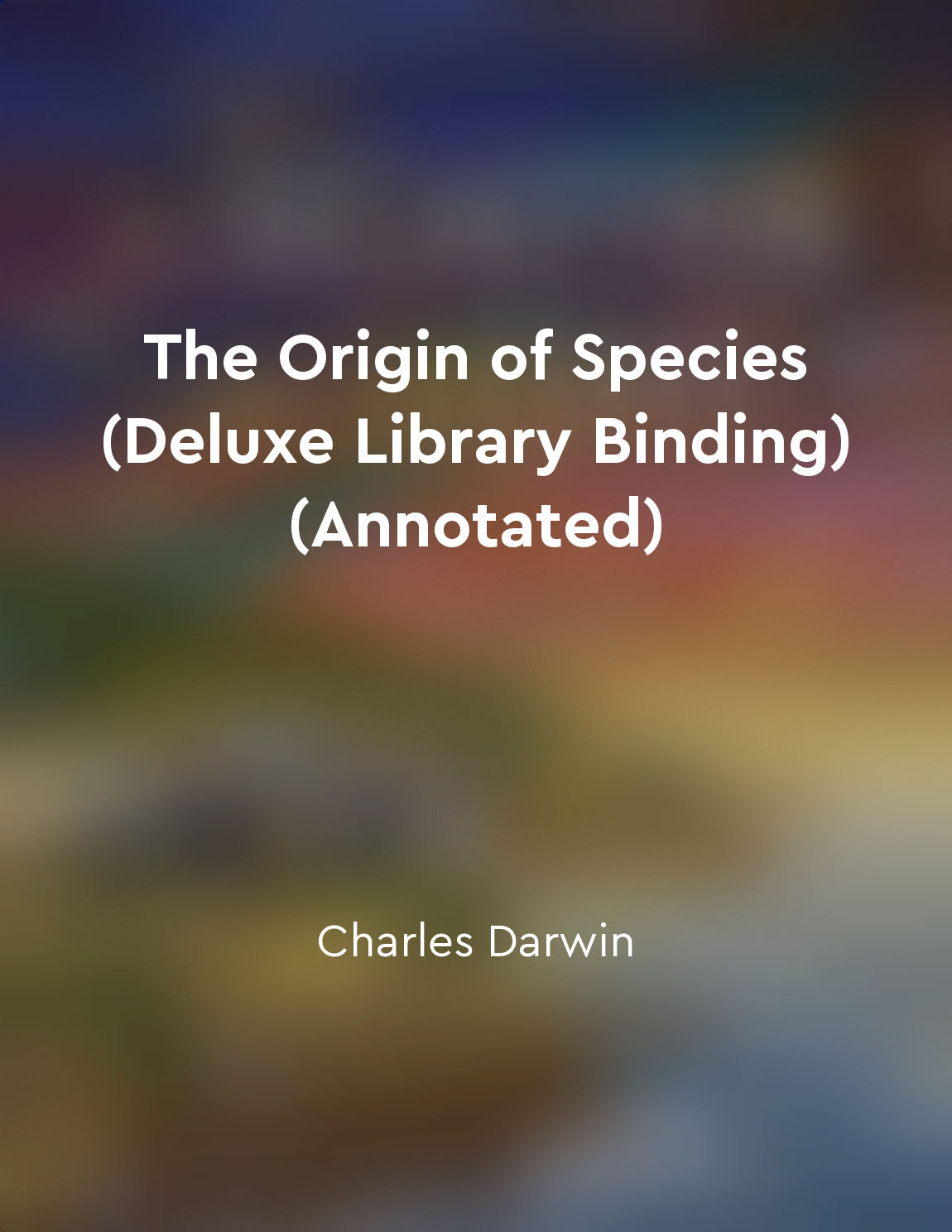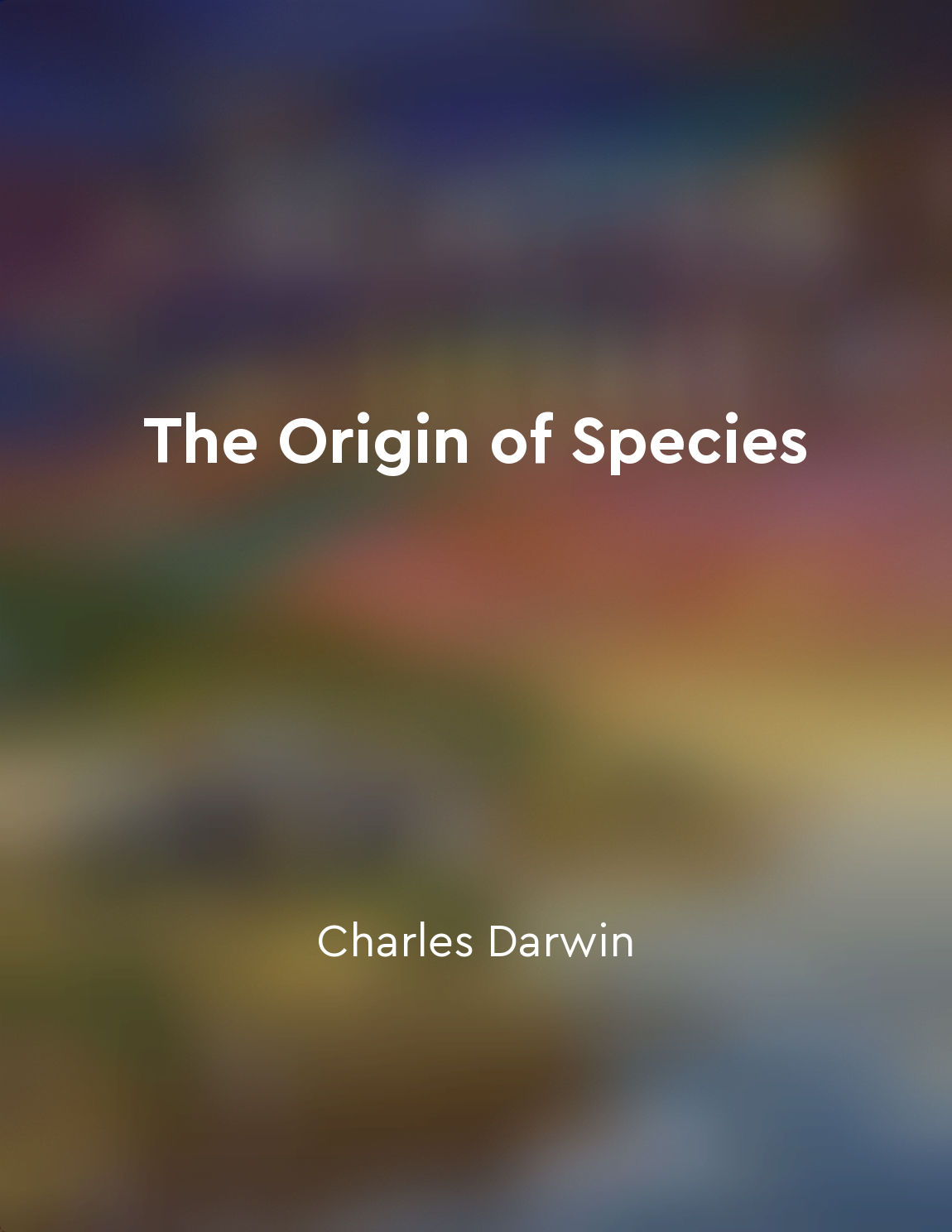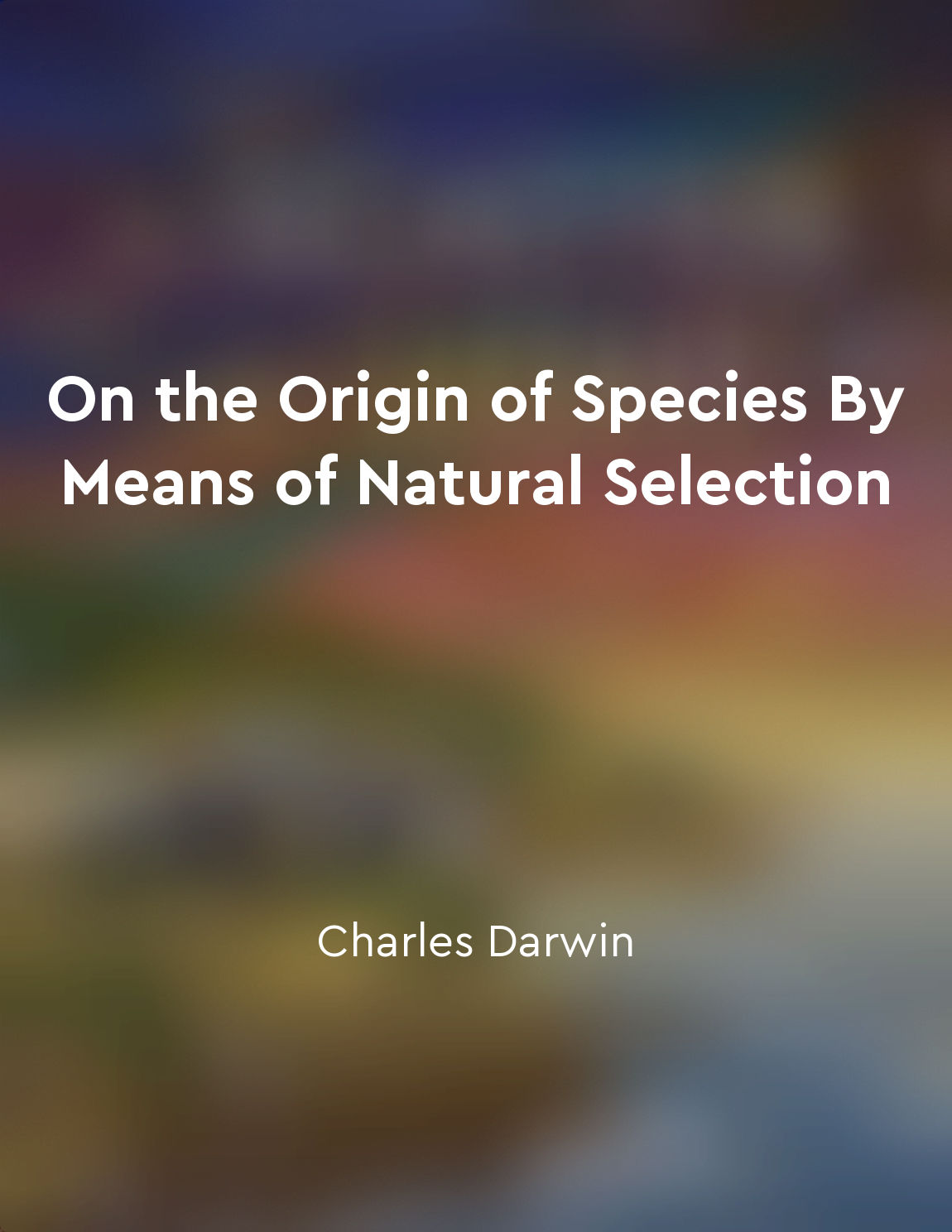Divergence of species through natural selection from "summary" of On the Origin of Species By Means of Natural Selection by Charles Darwin
The process of natural selection is a key mechanism by which species diverge over time. As individuals within a population vary in their traits, those with advantageous characteristics are more likely to survive and reproduce, passing on these traits to their offspring. This leads to an increase in the frequency of beneficial traits within the population, resulting in evolutionary change. Over generations, this process can lead to the formation of new species. As different populations of a species adapt to different environments or ecological niches, they may diverge from one another through natural selection. This divergence can result in the formation of distinct species with unique traits suited to their specific environments. Natural selection acts as a filter, allowing only those individuals with traits that enhance their survival and reproductive success to pass on their genes. This leads to the accumulation of beneficial traits within a population, driving evolutionary change over time. The concept of divergence through natural selection highlights the importance of environmental factors in shaping the evolution of species. Adaptations that increase an organism's chances of survival and reproduction in a particular environment are more likely to be passed on to future generations, leading to the divergence of populations and ultimately the formation of new species. By studying the process of natural selection and the divergence of species, we can gain a better understanding of the mechanisms driving evolution and the diversity of life on Earth. This concept provides insights into how species adapt to their environments and how new species arise through the gradual accumulation of beneficial traits.Similar Posts

Seek out diverse perspectives
In our quest for innovative solutions and effective strategies, we often turn to those who share our perspectives and beliefs. ...
Agricultural policies should consider the needs of smallholder farmers and communities
When crafting agricultural policies, it is crucial to take into account the specific requirements and challenges faced by small...
The use of scientific methods
Scientific methods are the tools we use to find out about the world. They are the ways we discover truths about reality. These ...
Evolution is a gradual and incremental process
Evolution, the process by which species change over time, is often mistakenly perceived as a slow and gradual progression. This...

Species adapt to new environments
The process of adaptation is fundamental to the survival of species in changing environments. As conditions shift, organisms mu...

Competition among species drives evolution
The struggle for existence among all organic beings throughout the world, which we see everywhere in our daily lives, is the dr...

Geographic isolation leads to speciation
Darwin proposed that when a population becomes geographically isolated, it can lead to the formation of new species over time. ...

Species evolve through natural selection
The process of natural selection, as I have described in great detail, is the mechanism by which species evolve over time. It i...
Fitness landscapes shape evolutionary trajectories of organisms
The idea that fitness landscapes play a crucial role in shaping the evolutionary trajectories of organisms is a central concept...
Evolutionary theory can inform conservation efforts
The application of evolutionary theory to conservation efforts represents a powerful and essential tool in the modern world. By...

